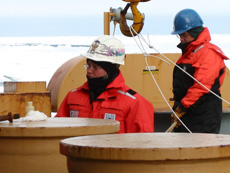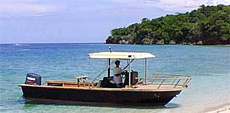
Archipelago Marine Research Ltd is a world leader in the field of fisheries monitoring and marine environmental assessment. Based in Victoria, British Columbia, Archipelago has been providing marine biological services since 1978. The firm is responsible for monitoring analysis of several commercial fisheries, providing over 10,000 days of at-sea observing per annum.
Successfully managed commercial fisheries must ensure that harvesting practices fit within long-term resource conservation targets and sustainability goals. In meeting these objectives, fisheries data systems must become more comprehensive and higher in quality. Traditional data collection usually involves at-sea observers.
However, it is impractical for certain fisheries due to the labour cost of these observers as well as the accommodation of the extra person on the vessel. Archipelago began looking for a technology based at-sea monitoring approach as a means to address these issues.
Solution
Archipelago utilized Silent Witness components in the development of a custom on-board video monitoring system. The monitoring system is housed in a locked, tamperproof enclosure and is connected to a number of sensors, such as the winch, hydraulic pressure transducer, and in the case of the crab fishery, the radio frequency identification scanner. At the heart of the system is the DVMS Duplex that records fishing imagery along with information from the GPS receiver and other sensors. As well, MagnaView V28S cameras were mounted on the mast to observe hauling of the catch and various other fishing operations.
